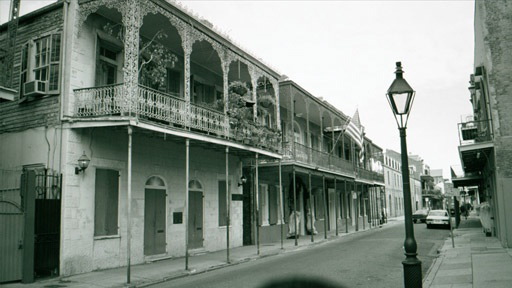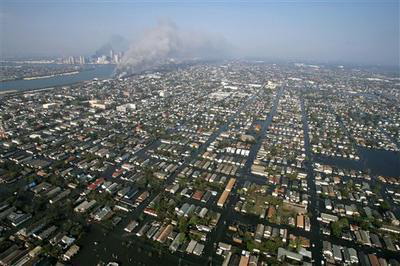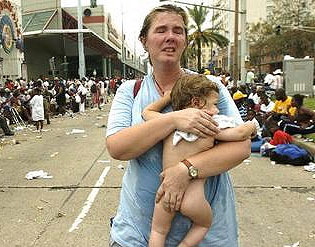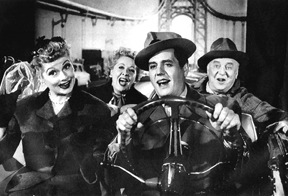Sep 2005
The Cold War Between Microsoft and Apple Heats Up
09/26/2005 21:53 Filed in: Technology
Interesting developments lately in the world of potshots between Apple/Mac Users & Microsoft
If you have nothing better to do, first read this:
"Microsoft's Executives Discuss Apple Competition."
Then read John Welch's take on the above and also his analysis of where Microsoft's Mac Business Unit (MacBU) now fits in with Microsoft's reorganization (it's now in the Home and Entertainment Division along with the XBox): The MacBU at the Crossroads .
Then read Rick Schaut's response to John Welch (and make sure you read the comments for more tit for tat between Welch & Shaut). Schaut is a programmer for MacBU, specifically working on MS Word for the Mac: "Goin' Down to Rosedale."
Unfortunately, too much of the Mac's perceived survival still depends on Microsoft and to a lesser extent, Adobe, neither of whom (from my perspective) seem to care a whole lot about the Mac's survival. A lot may happen in the next two years...
If you have nothing better to do, first read this:
"Microsoft's Executives Discuss Apple Competition."
Then read John Welch's take on the above and also his analysis of where Microsoft's Mac Business Unit (MacBU) now fits in with Microsoft's reorganization (it's now in the Home and Entertainment Division along with the XBox): The MacBU at the Crossroads .
Then read Rick Schaut's response to John Welch (and make sure you read the comments for more tit for tat between Welch & Shaut). Schaut is a programmer for MacBU, specifically working on MS Word for the Mac: "Goin' Down to Rosedale."
Unfortunately, too much of the Mac's perceived survival still depends on Microsoft and to a lesser extent, Adobe, neither of whom (from my perspective) seem to care a whole lot about the Mac's survival. A lot may happen in the next two years...
|
The Myth of Limited Software Choice for the Mac
09/17/2005 15:31 Filed in: Technology

"Word processors" hanging out on my PowerBook (from left to right):
MS Word , Mellel , InDesign , Pages , AppleWorks , TextEdit
When I first began debating about switching to the Macintosh platform in 1998, I asked a friend of mine who was a longtime Mac user if there were any major disadvantages. He explained to me that the downsides to the Mac platform revolved around fewer games and less software choice for standard applications. To illustrate, he said, "You're not going to have a dozen different word processors to choose from like you do with Windows, but if you use Microsoft Word, then you're just fine since it's available for both Windows and the Mac."
Since then, when I've been asked the same question, I have echoed my friend's example. Of course even then, it was a bit of a non-issue. For the average user of 1998 or today, MS Word became the dominant choice for word processing years earlier.
And then today, I came across an interesting website that lists all word processors for Mac OS X. How many would you guess there are? Three? Six? A dozen?
Try 67. That's SIXTY-SEVEN.
Now, granted, the apps listed are of differing abilities ranging from something like Adobe InDesign to simple text editors with MS Word in the middle, but 67 is a mind boggling number. And that doesn't even include an application like iBlog that I'm using to write this blog entry. iBlog is basically an WYSIWYG HTML editor with simple content management system software built in. But I'm not going to write a letter home to Mom in it, so it can't really count as a word processor. But something like InDesign can. Granted, it's geared much more to advanced layout and design uses, but I have seen such software used by secretaries for correspondence. Yes, it's overkill, but it works.
I was curious to know how many word processing applications I have on my PowerBook (which is what I'm writing this on). I found at least six as shown in the graphic above (I think that's more than what I had in my Windows days, for the record). I would even count TextEdit which comes with Mac OS X even though it is not in the list of 67. But it has basic formatting features (bold, italics, etc.) and the ability to save in RTF, Word and even WordXML formats, so I think that counts.
As a side note, lately I've been using Mellel , a word processor geared toward academic use from a company out of Israel. It handles unicode Greek and Hebrew exported from Accordance better than any word processor I've ever seen. And it's built-in bibliographic tools make it the ideal word processor for academic writing on the Mac. Mellel doesn't do everything yet that I need it to do, but the developers have promised most of the features I care about in upcoming updates.
Now, before my Windows-using friends counter that although there are 67 Mac word processors. there are a kabillion Windows word processors... Fine. I know. Yes, I assume that there are more for Windows. But the average person uses ONE, maybe two. Out of 67 for the Mac, I assume that most people can find what they are looking for.
Update on the One Car Experiment
09/15/2005 15:09 Filed in: Culture Watch
Over the past two weeks by using only one car instead of two, we've saved exactly $55 in gas expenses. For the mathematically challenged, that's roughly $110/month which is no small change. As you might remember from a previous post, I've been dropping Kathy off at work and picking her up every afternoon. We've been very conscious about weighing the necessity of any extra trips into Louisville. Who would have thought that driving two cars and all the extra trips would add up so quickly. So how much would we save with one car if we cut out the extra cost of insurance, oil changes, miscellaneous repairs? Something to think about...
Labor Day 2005
09/05/2005 23:22 Filed in: Personal

We had a very relaxing Labor Day weekend. I feel a little guilty because I didn't get in as much study as I needed to, but we spent the time with friends on Saturday and Sunday and then by ourselves for a relaxing day on Monday.
CLICK HERE to see the pictures I've posted on our website.
A Fond Memory of New Orleans: Never Bet on Another Man's Game
09/03/2005 01:10 Filed in: Personal

All the recent footage of the devastation from Hurricane Katrina made me think back to an experience I had in the French Quarter almost two decades ago. I was fresh out of high school and was in New Orleans with some friends. One of the interesting things about Bourbon Street and the French Quarter that I noticed was that during the daytime, there were a number of street hustlers working various shell games and other cons. Interestingly, I observed that they tended to close up shop at sunset and pretty much disappeared.
However, it was middle of the afternoon, and as I was walking down Bourbon Street with my friends, a local approached us and suggested that he would bet any of us $20 that he could tell us "where we got our shoes" right down to city and street name. Of course, years earlier my grandfather had instilled in me the wisdom to never bet on another man's game. However, I was curious to know the trick. How could he possibly know where I got my shoes?
So, I asked him if he would settle for one dollar instead of a full twenty. Easy money is easy money, regardless of the amount, so he agreed to bet me $1 that he could tell me where I got my shoes. So, I pulled out my dollar and so did he and I said, "So tell, where did I get my shoes?"
He looked me right and the eyes and although he was a hustler, evidently he also had the heart of a teacher toward me--a supposedly naive 18-year-old. "First," he said, "never bet on another man's game." Did he know my grandfather?
Then, to claim my dollar he said, "You GOT your shoes on your FEET on BOURBON STREET, NEW ORLEANS, LOUISIANA." As he smiled and held out his hand for my money, I hesitated. Technically, his English was incorrect. Got implies "received" or "bought." Therefore, if his grammar were correct he would have to say "You HAVE your shoes on your feet..." which was not the original wager.
However, he was bigger, older and frankly, I was too scared to get into a grammatical debate with him. Plus, I just wanted to know the trick, so I gave him the dollar, and my friends and I continued to stroll down the street. My grandfather had been proven right--never bet on another man's game!
Thoughts on Response Time Anger
09/03/2005 00:13 Filed in: Miscellaneous
There is a lot of anger around this situation both in the hurricane stricken areas and from those who are observing it. On one hand, this event is unprecedented in American history. Plus in the case of New Orleans, proper, the storm hit on Monday, but the city didn't completely flood until Tuesday, drawing out the catastrophe itself and hampering initial rescue efforts. Were we ready for something like this? Evidently not. Even President Bush has acknowledged that the response time has been inadequate . And on the other hand, I don't doubt that if I were stranded in New Orleans, I would be quite angry myself at this point. One thing I've noticed in watching some of the reporters on site is that even they are extremely emotional about the situation. It's understandable.
Contrary to the claims made by some politicians and others, I have trouble believing that the slow response is racially motivated. Rather, I think we may have too much bureaucracy in the way we respond to crises on this scale. Every metropolitan area ought to put into place a response plan for responding to disaster situations, whether natural or manmade, including how to coordinate with federal agencies.
Finally, I don't understand the claim that the term "refugee" is racist--especially since it has been applied to blacks and whites alike. A refugee is someone seeking refuge, safety from a crisis situation. The Oxford American Dictionary defines a refugee as "a person who has been forced to leave their country in order to escape war, persecution, or natural disaster." In this case, you could consider the people displaced by Hurricane Katrina as domestic refugees. What's wrong with that? What's racist about it? Does anyone have a better term?
Let's cut out the rhetoric and focus on helping those who need help.
Contrary to the claims made by some politicians and others, I have trouble believing that the slow response is racially motivated. Rather, I think we may have too much bureaucracy in the way we respond to crises on this scale. Every metropolitan area ought to put into place a response plan for responding to disaster situations, whether natural or manmade, including how to coordinate with federal agencies.
Finally, I don't understand the claim that the term "refugee" is racist--especially since it has been applied to blacks and whites alike. A refugee is someone seeking refuge, safety from a crisis situation. The Oxford American Dictionary defines a refugee as "a person who has been forced to leave their country in order to escape war, persecution, or natural disaster." In this case, you could consider the people displaced by Hurricane Katrina as domestic refugees. What's wrong with that? What's racist about it? Does anyone have a better term?
Let's cut out the rhetoric and focus on helping those who need help.
The Best Source for News on New Orleans
09/02/2005 16:56 Filed in: Miscellaneous

Above: New Orleans, Friday, September 2
The best place for up-to-date news on New Orleans seems to be found at http://www.nola.com which is a combination of AP stories and reports from the New Orleans Times-Picayune , which in spite of seemingly impossible obstacles is still in operation.

Above: Lee Bemboom struggles to carry her 11-month-old as she searches for help outside the Convention Center. Melissa Phillip/Associated Press
Also, you may have heard it on the news yesterday, but if you want to hear the interview with New Orleans Mayor Ray Nagin, click on this link . Warning: In the midst of giving a very impassioned plea, Mayor Nagin uses some very strong language. In light of the circumstances, I certainly don't hold that against him, but I'm warning you in case you have young children around.
Voices from the Whirlwind
09/01/2005 22:21 Filed in: Miscellaneous
Then the LORD answered Job out of the whirlwind and said... (Job 38:1, NASB)
The good news is that I have heard from two of the four friends who lived in New Orleans or the surrounding area. They are safe and for that we rejoice.
My lifelong friend Bryant Shaver gave me permission to quote him here. Bryant and I have known each other since we were in kindergarten. We went through grade school, college and even seminary together. Most recently Bryant has been pursuing a doctorate in American History from University of New Orleans. Today, I got this email from him:
I am safe and sound in Ruston. We are waiting for the green light to re-enter the city in order to see the damage. They will allow us in to gather possessions but then we have to leave for at least one month. As for school, I don't know what will happen. Unfortunately, it looks as though I will lose a semester and not graduate as planned in the spring. That will really mess up PhD plans. The good news, however, is that the sun is shining and life continues.
Bryant's attitude shines through in the midst of difficult circumstances.
Then earlier today, I checked the website for New Orleans Baptist Theological Seminary , and I saw this reflection on the timing of recent events:
In spite of our present circumstances we are still seeing the evidence of God's mercy. New Orleans did not get a direct hit from the storm. The levee did not break until the storm passed and rescuers could get out to help. Those evidences of mercy are but illustrations of the grace that will sustain us all the way through this challenge.
I had not thought of this. If the levees in New Orleans had broken at the same time as as the hurricane hit, loss would be even greater, especially in regard to human life. Fortunately, the levees broke after the worst of the storm passed. We don't always know why certain things happen, but we can still find God's grace when we look for it.
The good news is that I have heard from two of the four friends who lived in New Orleans or the surrounding area. They are safe and for that we rejoice.
My lifelong friend Bryant Shaver gave me permission to quote him here. Bryant and I have known each other since we were in kindergarten. We went through grade school, college and even seminary together. Most recently Bryant has been pursuing a doctorate in American History from University of New Orleans. Today, I got this email from him:
I am safe and sound in Ruston. We are waiting for the green light to re-enter the city in order to see the damage. They will allow us in to gather possessions but then we have to leave for at least one month. As for school, I don't know what will happen. Unfortunately, it looks as though I will lose a semester and not graduate as planned in the spring. That will really mess up PhD plans. The good news, however, is that the sun is shining and life continues.
Bryant's attitude shines through in the midst of difficult circumstances.
Then earlier today, I checked the website for New Orleans Baptist Theological Seminary , and I saw this reflection on the timing of recent events:
In spite of our present circumstances we are still seeing the evidence of God's mercy. New Orleans did not get a direct hit from the storm. The levee did not break until the storm passed and rescuers could get out to help. Those evidences of mercy are but illustrations of the grace that will sustain us all the way through this challenge.
I had not thought of this. If the levees in New Orleans had broken at the same time as as the hurricane hit, loss would be even greater, especially in regard to human life. Fortunately, the levees broke after the worst of the storm passed. We don't always know why certain things happen, but we can still find God's grace when we look for it.
The Return of the One-Car Family
09/01/2005 00:00 Filed in: Culture Watch

As I watch the devastating aftermath of Hurricane Katrina, I feel very fortunate for the basic things of life--a home, family, work--the things we usually take for granted. I can't imagine losing one of those things, let alone all of them at the same time as has happened to some.
Even with so many affected and displaced, the majority of the country is not so directly affected, but we will all be affected indirectly. This is not a good time to be building or remodeling a house. All resources are about to head south as New Orleans, Biloxi, Gulf Port and surrounding areas go through the process of rebuilding what was lost. The price of wood and steel is about to get much higher, especially for those who don't have the immediate need that the Gulf cities do. I heard from a friend today that even the price of coffee will go up since 20% of the nation's coffee supply is warehoused in New Orleans. But the biggest thing to affect the rest of us immediately is the price of fuel for our cars.
Locally, the price of gas jumped 65¢ in the last 24 hours. Now it's officially well over $3--the highest any of us have ever seen. I don't know about you, but Kathy and I now think before we even make unnecessary short trips. And it's been this way for the last few weeks as gas prices continued to rise. And for us that even means driving from Simpsonville to Louisville. Two weeks ago, we figured that it it cost us $6 just to drive into Louisville and back. As of tonight, it now costs even more than that. Therefore, we stay home a lot more.
But at the beginning of the week we also began doing something new--we began using one car. Kathy's PT Cruiser gets much better gas mileage than my Ford F150. So rather than each of us going our separate ways in the morning, we have been leaving together, and then coming home together. And you know what? It's kind of nice. We have to compromise. Kathy has to get up a little earlier than usual and I leave probably slightly later than I normally would. We walk out the door together around 7 AM, and I drive her to Simpsonville Elementary School where I drop her off. Then I make the drive into Louisville (although I studied from home on Monday to save gas). At some point in the day, I email Kathy and ask her what time I should pick her up, and that has varied so far between 5:30 and 6:00 PM.
Kathy says she loves the extra time we spend together, and I agree. When she sees me drive up to get her in the evenings, she says it makes her feel special to be picked up--like a child who's been at daycare all day and sees her family coming to get her. Now we begin to describe our individual days to each other before we get home instead of afterwards. We walk into our house talking to each other and continue to do so as we go about tending to Bessie Mae and getting our dinner ready. It's hard to imagine that a simple process like using one car to go to work would draw us even closer, but it has.
And we're not the only ones doing it. A friend of mine told me he and his wife are doing the same thing--at least a few days of the week--and Kathy tells me that the secretary at her school has started sharing a ride with her husband as well. Have you tried this? What are your thoughts? Hit the comment link below and let us know. Maybe it's a trend. Give it a try. Sure you will have to think about your schedules and make a few compromises, but the benefits may be even greater than just monetary. Plus, we may all look up and discover that we don't need two cars after all...









